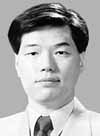[Opinion] Wet Books In The Rain, Leaked Cultural Policy
[Opinion] Wet Books In The Rain, Leaked Cultural Policy
Posted July. 26, 2001 10:03,

Wholesale book businesses and the large sized bookstores located in the underground in Jongro, Seoul, were severely damaged by the heavy torrential rain. It was reported that 1-2 million books, equivalent to 6-7 billion won, were damaged in the street of the bookstores in the fifth avenue of Jongro. Publishers Association is requesting for the national support saying that ``unlike other commodities, restoration of the books is not possible once they are wet.`` However, it is hard to guess how a national level of support can be made. While inquiring a legal base and an administrative procedure for the government support, one of the most important veins toward a society, founded on knowledge, will suffer arteriosclerosis. In the end, it is highly likely that the small-scale businessmen in the street of the bookstores and the publishing companies, which suffer in the midst of miserable publishing surroundings, will have to share the burden.
When a rapid migration of population took place due to the revolution of modernization, books were the most burdensome and heavy goods to be moved. However, books were the initiators of modernization in this country and the agents that created the cohesive power of the modern nation.
However, in the midst of IT revolution which is leading the latter Gutenberg era, a phenomenon of contemptuous treatment of books is prevailing, as if the usefulness of books will disappear soon. According to the first review of the Ministry of Planning and Budget on the year 2002 budget of the Ministry of Culture and Tourism, 10 billion won for the construction of public libraries is included in the reduction item, and 15 billion won for the purchase of the public library resource is under the list of curtailment of the total amount. It looks as if cultural policy is leaking while wet books are waiting for the sunshine.
Although IT revolution may bring the electronic books as a replacement of paper books, it does not produce the content itself. While South Korea is encouraging high-speed network of the information through IT revolution, many developed countries are concentrating on the development of cultural contents that will spread through the network. Although national borderlines are easy to pass, conflicts over the cultural identity are getting worse. A nation bound by blood may be weakening, but the cohesive power of a nation through the medium of culture is strengthened. The book stands in the center of such a cohesive power.
The government should procure the whole wet books, which cannot be sold, and use them to form the foundation of a new national community. This is the right governmental strategy in the 21st century in which culture rules. The government does not have to draw up a new budget.
By procuring all the wet books as a part of the work of the Korea Research Foundation, Korea Foundation, Hanminjok Network, South-North Cooperative Fund, and International Cooperative Business under the Ministry of Education and Human Resources, send them to the North Koreans, Koreans abroad, and the people who live in the remote areas. Will they receive the wet books? It is baseless anxiety if one thinks about the used books, which were delivered by students of the Hanshin University. Students of the Hanshin University visited Yunhaejoo for the purpose of overseas service in 1999 and delivered used books to the Kareiski in Usurisk instead of ramyon noodles in their backpacks. Though wet, those books must be the books soaked in tears for the Koreans abroad who thirst for the Korean books.
Kim Myung-Sup (Professor of International Politics, Hanshin University)
Headline News
- Joint investigation headquarters asks Yoon to appear at the investigation office
- KDIC colonel: Cable ties and hoods to control NEC staff were prepared
- Results of real estate development diverged by accessibility to Gangnam
- New budget proposal reflecting Trump’s demand rejected
- Son Heung-min scores winning corner kick







